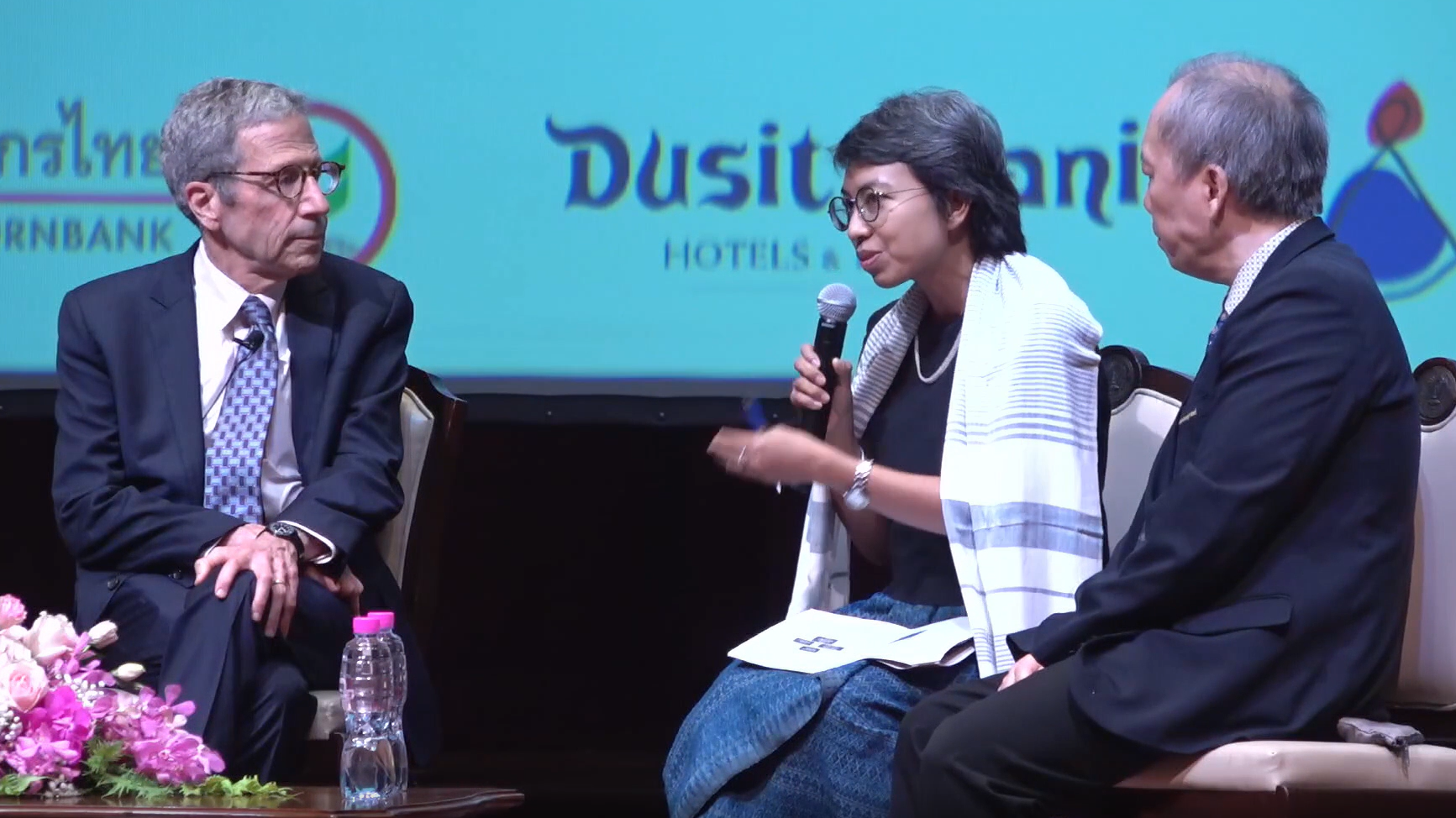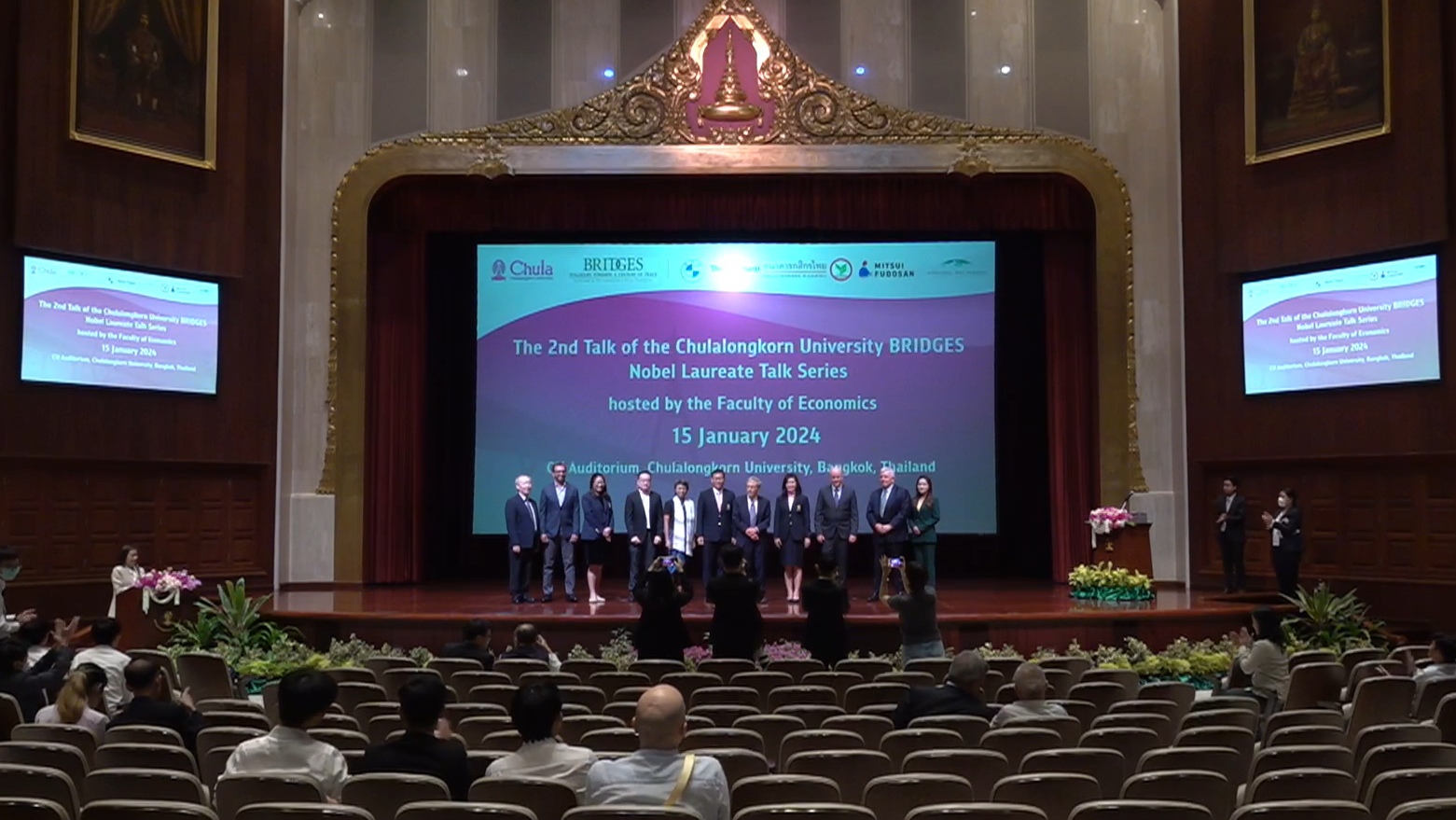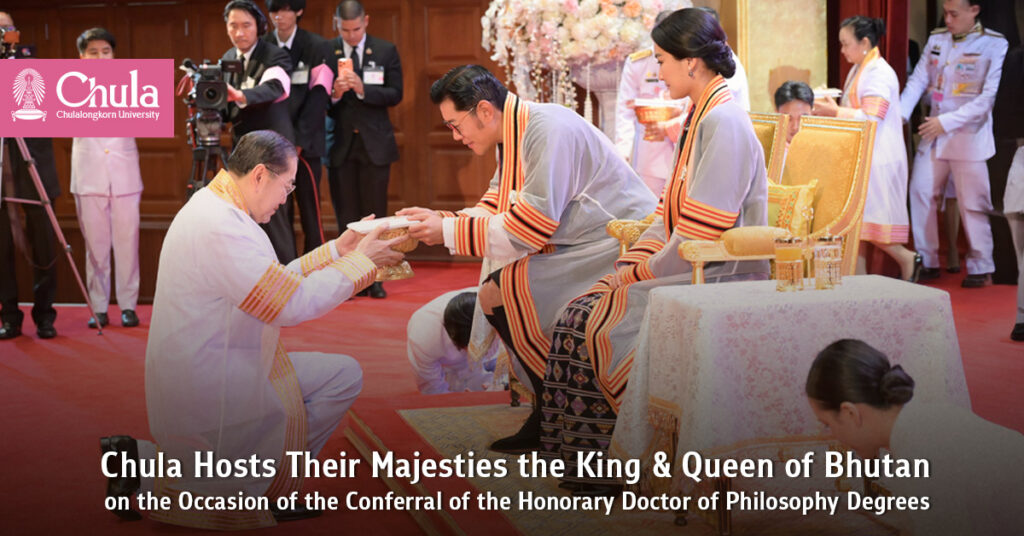Chulalongkorn University BRIDGES Nobel Laureate Talk Series: Unraveling the Threads of Economic Insight

As the Chulalongkorn University BRIDGES Nobel Laureate Talk Series unfolds, the second session, held on January 15th, 2024, drew an audience eager to delve into the realm of economic wisdom. Being part of the JAPAN-ASEAN BRIDGES Event Series, a collaboration facilitated by the International Peace Foundation, this event is slated to host four distinguished Nobel Laureates in Physics, Economics, and Medicine in four enlightening sessions.
The January session, the second session of the series, commences with an enlightening keynote address by a Nobel Laureate in Economics, Professor Eric Stark Maskin, who was awarded the Nobel Memorial Prize for Economics in 2007. He was honored “for having laid the foundations of mechanism design theory,” the branch of economics concerned with “economic engineering.” Professor Maskin, the Adams University Professor and Professor of Economics and Mathematics at Harvard University, is renowned for his contributions to the field and currently serves as a member of the Advisory Board of the International Peace Foundation. He has been associated with prestigious institutions, including the University of Cambridge, the Massachusetts Institute of Technology, and the Institute for Advanced Study in Princeton, New Jersey. His insights into “optimal” auctions and advisory roles, such as guiding the Bank of Italy on auctioning treasury bonds, showcase the practical applications of economic theories.
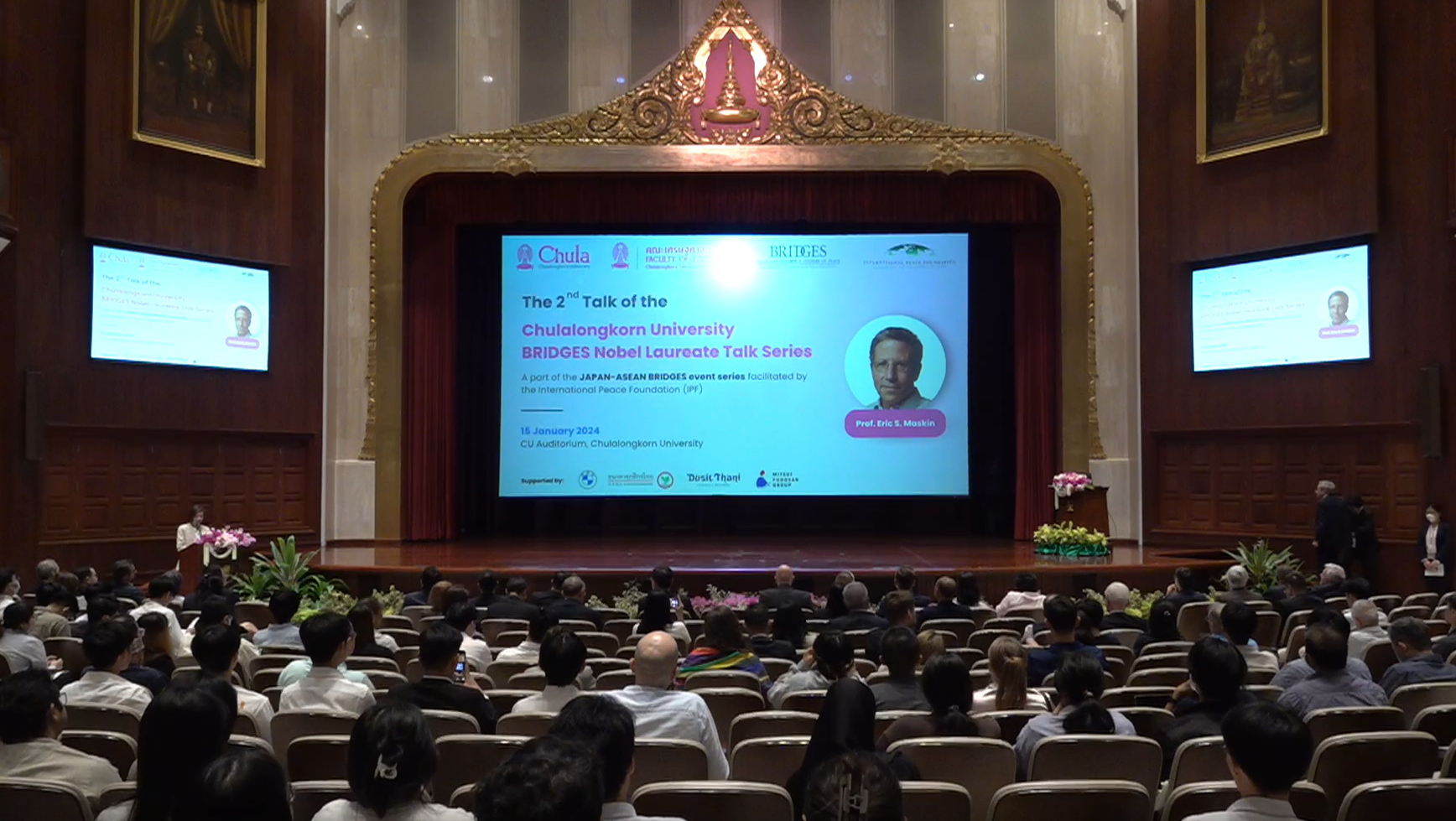
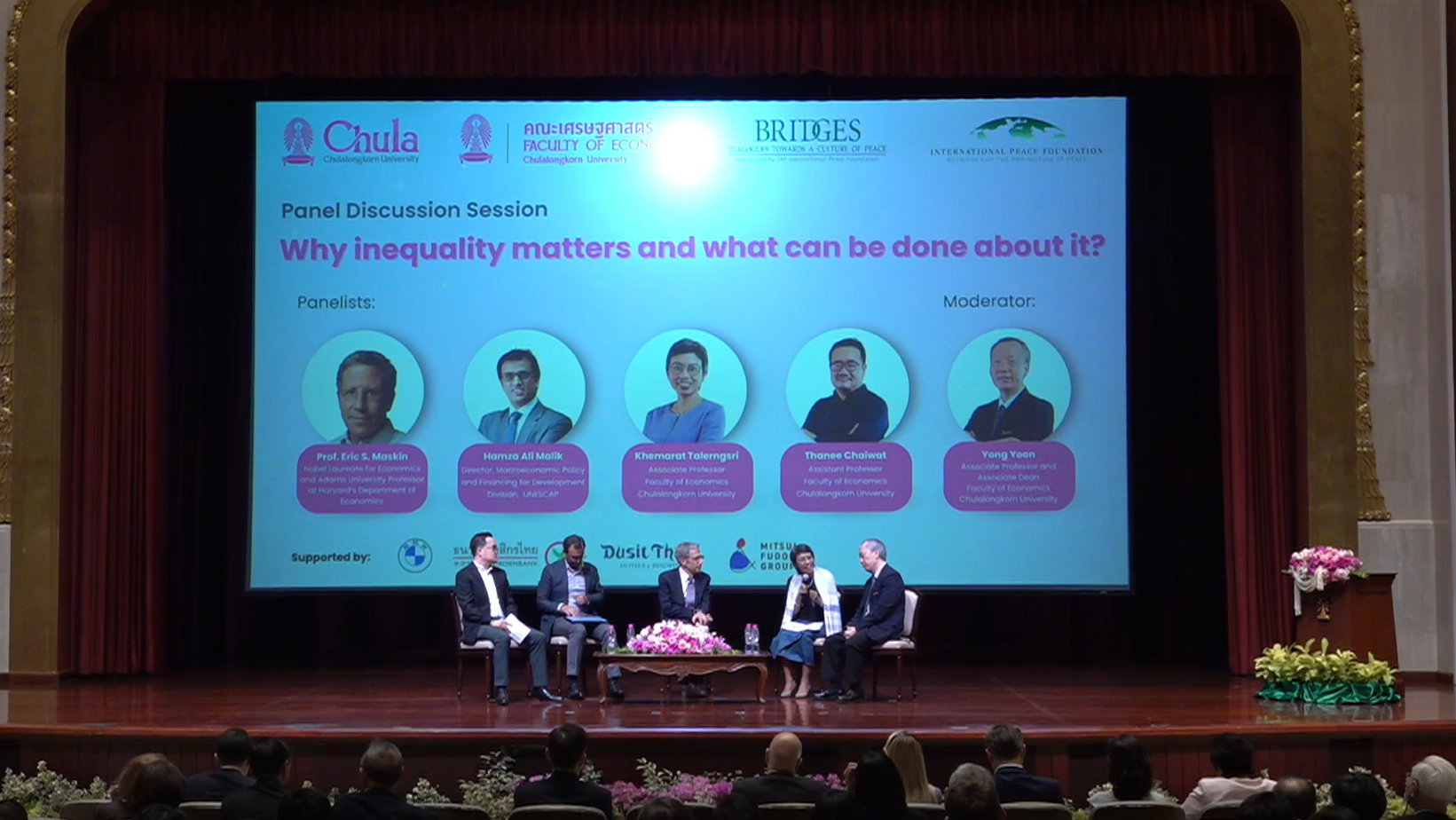
In his keynote speech entitled “Why globalization has failed to reduce inequality?”, Professor Maskin draws upon his extensive research to unravel the complexities of mechanism design theory and its profound impact on economic and social institutions. His work, which began in the mid-1970s in the area of “implementation” theory, has had a lasting influence on diverse areas of economic theory, including game theory, political economy, contract theory, and social
choice theory. His current research focuses on coalition formation, methods of voting that best promote democratic values, and the origins of income inequality.
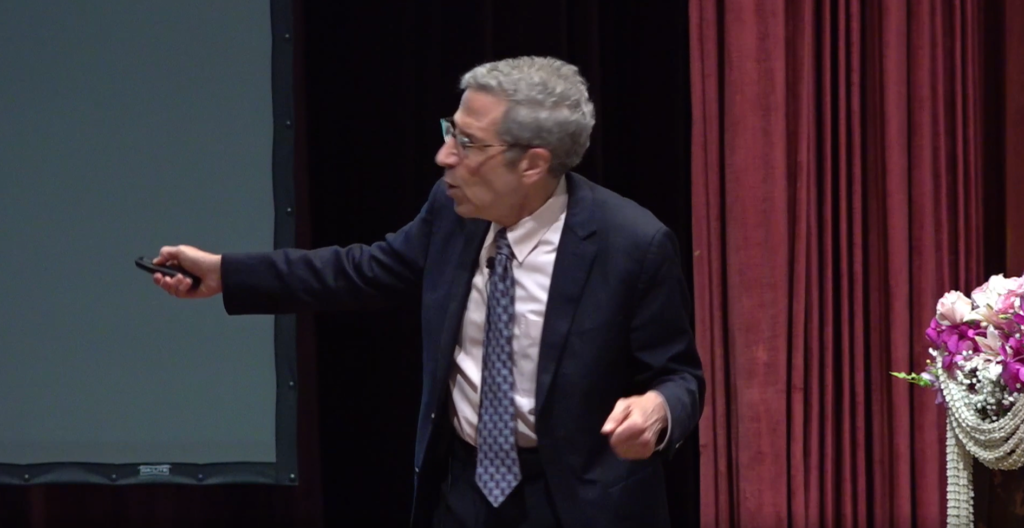
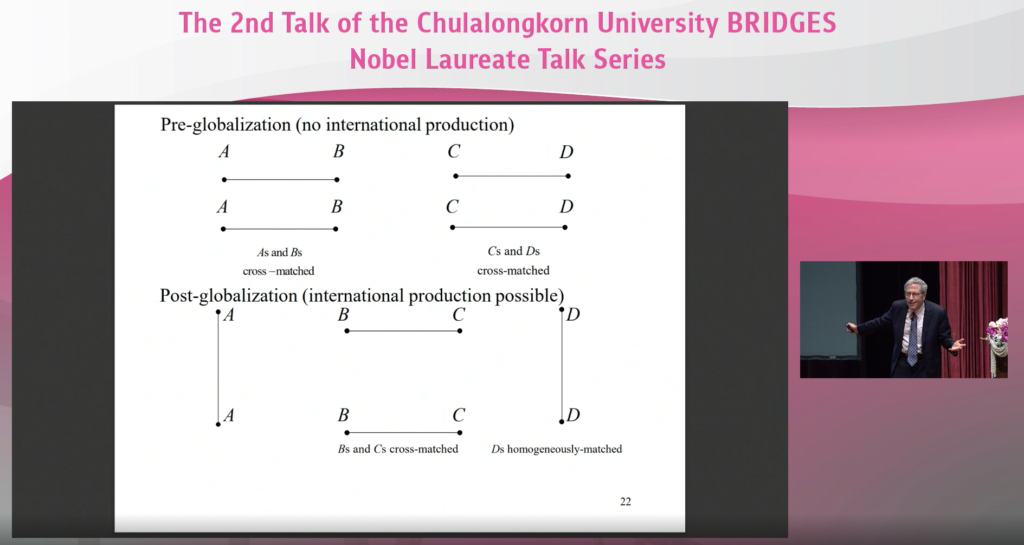
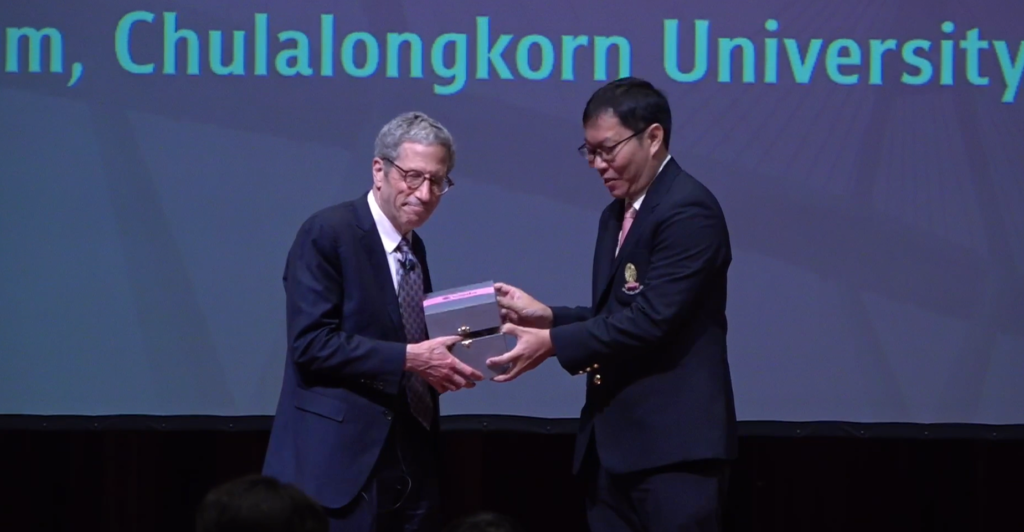
In this session, the Talk Series not only seeks to advance global collaboration and comprehension at a global scale through extensive research in the field of economy but also serves as evidence of the university’s dedication to fostering diversity, equity, and inclusion. During the panel discussion, speakers from various parts of the world offer their perspectives on the issue of inequality and how we can play our part in this matter, including Hamza Ali Malik, Director, Macroeconomic Policy and Financing for Development Division, UNESCAP; Assoc. Prof. Khemarat Talerngsri, Assist. Prof. Thanee Chaiwat, and Assoc. Prof. Yong Yoon, moderator for the discussion, from the Faculty of Economics, Chulalongkorn University.
The Chulalongkorn University BRIDGES Nobel Laureate Talk Series will continue in two more events between February and March 2024 (February 12th and March 25th). Interested participants can obtain more information via our website (https://www.inter.chula.ac.th/) . For those who wish to attend the session are welcomed to join the events, free of charge, by simply clicking the registration link (https://bit.ly/Chula_BRIDGES) . For further information and media inquiries, please contact The Office of International Affairs and Global Network, Chulalongkorn University, at int.off@chula.ac.th or 02-2183126
